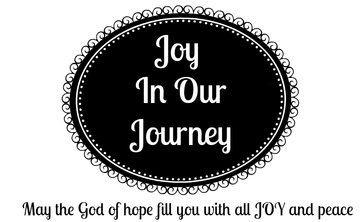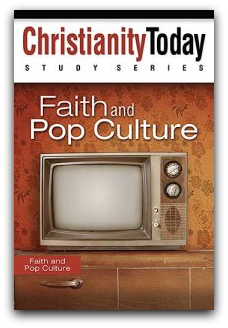|
Christianity and our modern day pop culture. They don't really go together well, do they? Everyone has a different opinion on what is allowable for Christians to view, listen to, or participate in. It was the same kind of struggle back in Jesus' lifetime, and also during the beginnings of the early church. Were they allowed to eat meat sacrificed to idols? Did Gentiles have to follow all of the Jewish code of laws to be a follower of Jesus Christ? It was complicated back then, just like it's complicated today. How are we supposed to handle this as Christian parents in a post-modern society? Christianity Today's Study Series on Faith and Pop Culture attempts to answer this question. Eight chapters in this book attempt to address a single aspect of pop culture these days. This is a group devotional, designed to be read and used in a small group or family devotional setting, although it is appropriate for individual use as well. The topics discussed in Faith and Pop Culture are:
Why would I choose to read this book for my family? I wouldn't call our family "ultra-conservative" about media and pop culture. We still own a television and view Netflix movies together. We allow our children to use the internet for a variety of things: schoolwork, hobbies, social interaction. We listen to a broader range of music than just hymns and classical titles. We read books that aren't always "Christian." But our family is also very careful with media. My husband and I strongly believe that what goes into the mind by our eyes and ears will eventually come out in our attitudes, and either squelch or encourage spiritual growth in our lives. Because of that, we've chosen to pay for filtering each month for our computers that go online and get email. We've set our YouTube viewing to "safety mode." We pay for ClearPlay DVD filtering each month to remove profanity, racial slurs, nudity, and related inappropriate content, etc. We rarely check out fiction books from the library unless we already know about the content in the book. We have positioned our computers in our home so that no one can block the view of what they are watching or doing online. We choose not to get full cable TV so that we can avoid most of the "bad" programs there. Lest you think our children are therefore naive because we educate them at home...and because of the precautions we take in filtering out media for our family, they are not. A short walk down the sidewalk will usually result in hearing the F-word at least once by other individuals walking down the street. Ten minutes in the grocery store can result in hearing the F-word and many other profanities numerous times. Speaking of grocery stores, nudity is visible - to some extreme or another - at most grocery store checkout aisles, on the magazine covers. I wish every grocery store had a family-friendly aisle like one of our local stores does. And most women these days, even in the church, dress with partial cleavage showing. If you haven't noticed. Cigarette butts scatter the front of our driveway, even though we don't smoke. Sometimes, we hear people yelling at each other in our neighborhood or participating in domestic violence. And one unforgettable moment in time, a large naked lady ran down our street, being beat up by her boyfriend's mother. Wow. Talk about a shocker. And until the motion-sensor cameras were installed around the middle school next door, we used to hear or see all kinds of drug deals, drug crimes, and other scandalous behavior I won't describe. It doesn't help when your house is literally 10 feet from the school parking lot. So, the question of the day is, what did my husband, Elmer, and I think of this book? Yup. We both read it. We both felt like this book didn't come across quite as strongly in favor of living a godly life as we would have liked. The author believed that if a media source (book, movie, television show, magazine, etc.) had strong art form, then it was worthy of being viewed. And, if the media source had poor art form, then it probably shouldn't be viewed. My husband and I believe strongly that art should not only have solid, strong form, but it should also have good taste and moral truths being related to the viewer. So no matter how well a picture may be painted, if the scene is depicting a very immoral act, it should not qualify as being "art", and at the least, at being art acceptable for Christians to view. This would also mean that many biblically-based movies and television programs that have very low art form would probably also be excluded by my family. We prefer to watch something that is high quality and also has strong moral views. The author of this book would say that most everything is allowable for the Christian to view, listen to, participate in, because there's a "message" in everything. Well, we wholeheartedly believe that we can teach biblical messages to our children without exposing them to an onslaught of profanity, innuendo, nudity, blasphemy, and the like. That's why we make certain we can watch a variety of movies that are filtered. We can still talk about the moral lessons in rated R movies, because the filtering we pay for makes the movie into a rated G version. And we're fine with that. We wear clothing that won't reveal any hint of cleavage, because we don't want to make it more difficult for the men and young men around us. Why tempt others to sin? What's the "good" in that? And what's the good at watching a movie or reading a book that is filled with filth and slander? How can that enhance someone's spiritual walk with the Lord? Seriously now. We are amazed these days at the low standard many Christians choose to use when viewing movies or reading books and magazines. You may call us "old-fashioned", but I seriously doubt that Jesus, if walking amongst us in this day and age, would happily pick up some of the more popular fiction book series and enjoy reading them. Or that he would enjoy sitting down and watching His name being blasphemed again and again. The two just don't seem to go together. In writing this, I risk being called a prideful, hateful person. If you have chosen to show cleavage as you dress, if you choose to regularly watch unfiltered rated PG-13 and R movies, if you regularly listen to music that contains swearing and immoral themes, if you read popular (or unpopular) books that contain repeated immoral and anti-biblical content, and you feel okay about doing these things, I won't judge you. But I probably won't be reading or watching any of the books and movies that you recommend to me. I can't trust your judgment. Faith and Pop Culture is an excellent book that will cause you to rethink your positions on media that surrounds you. You may wholeheartedly agree with what this author has chosen to say. You may not. Whichever way you believe after you read this book, please spend some time in prayer. Ask the Lord what types of media are beneficial to your mind and soul. And listen to His answer and make choices that go along with that. Faith and Pop Culture is under $9 at most retailers. It's not a thick book, and it will cause you to think. That is good! While we don't agree with some of the suggestions in this book, it will cause you to make decisions on the media that you view, and that is a good thing. Be convinced in your mind, after prayer and Bible study, on how to approach media in our day and times. I received one copy of Christianity Today: Faith and Pop Culture from BookSneeze/Thomas Nelson Publishers in exchange for my honest review of this book. No other compensation was provided.
0 Comments
Leave a Reply. |
Hi! I'm Julieanne!
|







